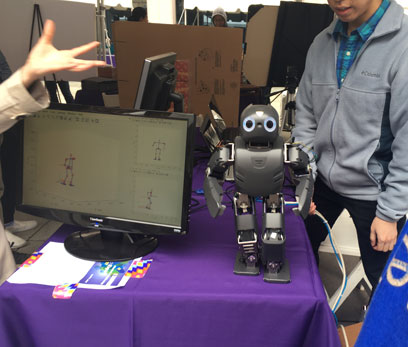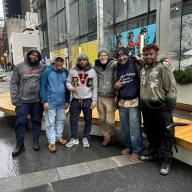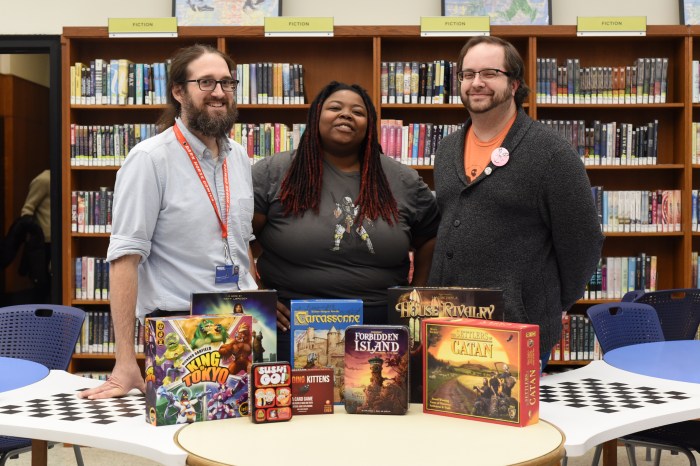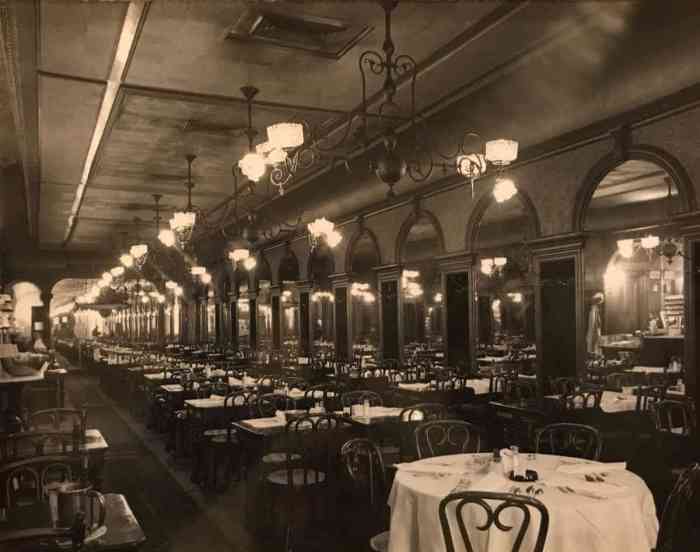Nerds rule!
Eggheads at New York University’s Tandon School of Engineering showed off their latest gizmos and gadgets at the school’s fourth-annual Engineering Research Expo on Friday at Metro Tech, where heads of departments paraded their student’s latest innovations before a crowd of laymen, showing up colleagues through the triumphs of their star pupils.
“It’s basically them showing our projects are cooler,” said Kurt Becker, a vice dean at the school better known as Polytechnic.
And there was some pretty nifty tech on display, including communication equipment designed for Mars rovers, a concrete spewing three-dimensional printer, and a submarine designed for the liquid hydrocarbon seas of Titan, Saturn’s most exciting moon.
There were also lots and lots of robots, and the autonomous constructs couldn’t help but steal the show, according to Becker.
“The robots get a lot of attention,” he said.
One team of engineers demonstrated its study of the physical movements of a bipedal droid, called Darwin, which they had analyzed and mapped using a three-dimensional computer program that allowed them to compare the robot’s mechanical gait to the more fluid stride of a human.
In English, they were trying to get the robot to walk like a man.
“By understanding how a human can do that, we can apply the same principal to a robotic platform,” said Dr. Carlotta Mummolo, who led the team scrutinizing the robot’s walk.
Expo visitors were also invited to play guinea pig by taking command of a rover through an iPad interface as brainacs studied how easily they were able to get it to do what they want, according to one of its creators.
“If you want robots to get into society, you don’t want it to be too complicated,” said graduate student Sai Krishnamoorthy.
But not everything on display at the university’s engineering expo was user friendly, and many of the school’s tech-minded scholars stumbled over incomprehensible jargon as they attempted to explain their research to a not-as-savvy crowd, Becker acknowledged, something the teams have to work on.
“For the engineering students that is the hardest part,” he said. “When they go out to the real world they need to be able to communicate with people of other disciplines.”
A panel of judges named three projects winners at the end of the expo, basing their decisions on the exhibits potential societal impact, creativity, and the quality of presentation.
This year’s winners included a project demonstrating the potential impact of computer modeling on brain-growth research, technology that could reduce the effect of background noise on people with hearing aids, and a new method for probing the dark corners of the internet in search of human traffickers.
But if Becker had his way, everyone would have left with a prize, he said.
“I would hate to be a judge myself,” said Becker. “I would give the first prize to almost everybody.”
Free lunch was also provided at the V.I.P. tent.























